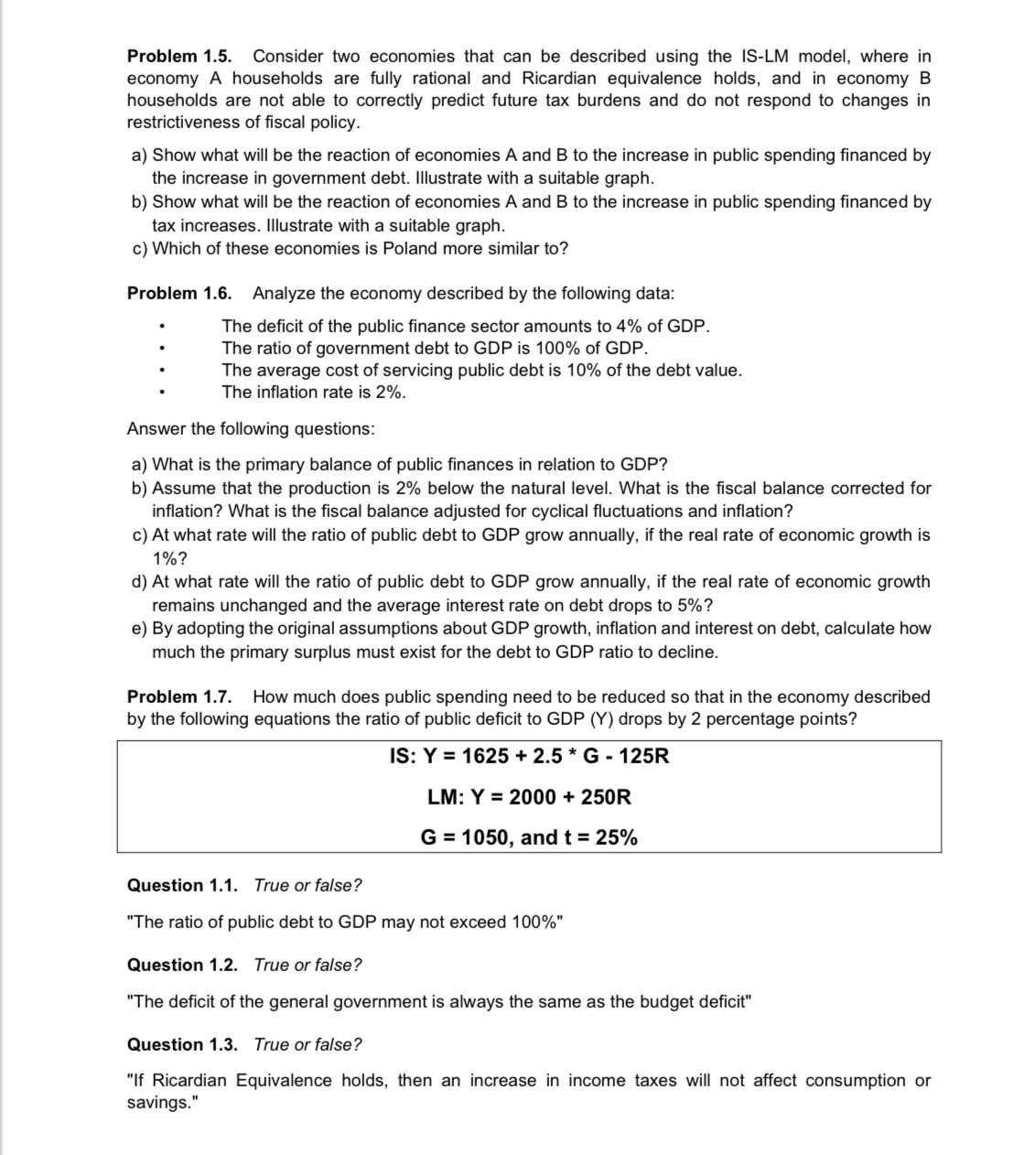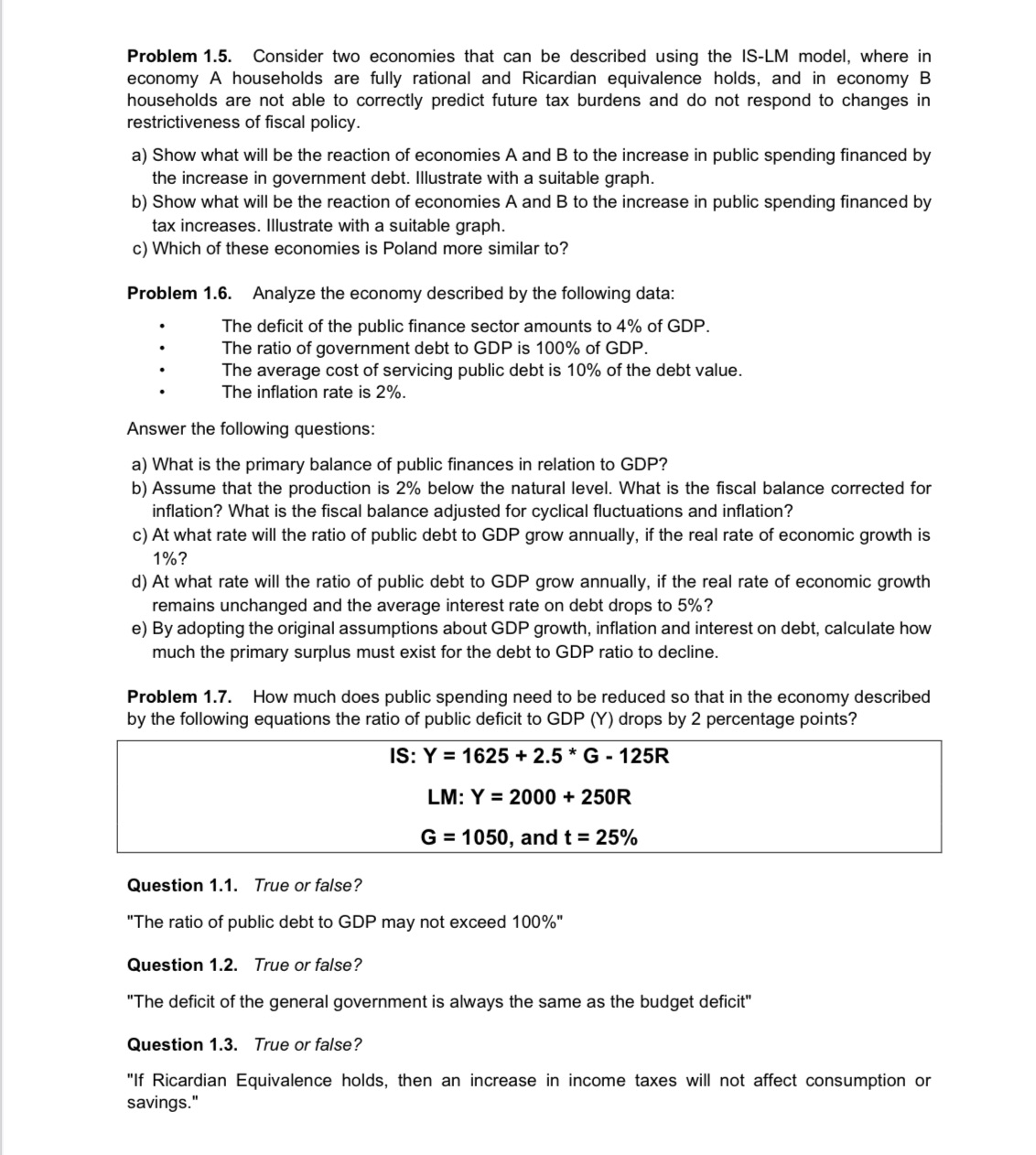
Problem 1.5. Consider two economies that can be described using the IS-LM model, where in economy A households are fully rational and Ricardian equivalence holds, and in economy B households are not able to correctly predict future tax burdens and do not respond to changes in restrictiveness of fiscal policy. a) Show what will be the reaction of economies A and B to the increase in public spending financed by the increase in government debt. Illustrate with a suitable graph. b) Show what will be the reaction of economies A and B to the increase in public spending financed by tax increases. Illustrate with a suitable graph. c) Which of these economies is Poland more similar to? Problem 1.6. Analyze the economy described by the following data: The deficit of the public finance sector amounts to 4% of GDP. The ratio of government debt to GDP is 100% of GDP The average cost of servicing public debt is 10% of the debt value. The inflation rate is 2%. Answer the following questions: a) What is the primary balance of public finances in relation to GDP? b) Assume that the production is 2% below the natural level. What is the fiscal balance corrected for inflation? What is the fiscal balance adjusted for cyclical fluctuations and inflation? c) At what rate will the ratio of public debt to GDP grow annually, if the real rate of economic growth is 1%? d) At what rate will the ratio of public debt to GDP grow annually, if the real rate of economic growth remains unchanged and the average interest rate on debt drops to 5%? e) By adopting the original assumptions about GDP growth, inflation and interest on debt, calculate how much the primary surplus must exist for the debt to GDP ratio to decline. Problem 1.7. How much does public spending need to be reduced so that in the economy described by the following equations the ratio of public deficit to GDP (Y) drops by 2 percentage points? IS: Y = 1625 + 2.5 * G - 125R LM: Y = 2000 + 250R G = 1050, and t = 25% Question 1.1. True or false? "The ratio of public debt to GDP may not exceed 100%" Question 1.2. True or false? "The deficit of the general government is always the same as the budget deficit" Question 1.3. True or false? "If Ricardian Equivalence holds, then an increase in income taxes will not affect consumption or savings."








